44 bacterial cell without labels
Visualization and In Situ Ablation of Intracellular Bacterial ... - PubMed Moreover, TPEPy-d-Ala can effectively ablate the labeled intracellular bacteria in situ owing to covalent ligation to peptidoglycan, yielding a low intracellular minimum inhibitory concentration (MIC) of 20±0.5 μg mL -1 , much more efficient than that of a commonly used antibiotic, vancomycin. Cell Labeling and Tracking Method without Distorted Signals by ... Cell labeling and tracking are important processes in understanding biologic mechanisms and the therapeutic effect of inoculated cells in vivo. Cell labeling and tracking can be used to distinguish transplanted cells from host cells, monitor distribution and migration after transplantation, and evaluate functional effects of the transplanted ...
Bacterial Cell Structure Labeling Diagram | Quizlet Cytoplasm Water-based solution filling the entire cell Ribosomes Tiny particles composed of protein and RNA that are the sites of protein synthesis Nucleoid Composed of condensed DNA molecules. Cell Membrane A thin sheet of lipid and protein that surrounds the cytoplasm and controls the flow of materials in and out of the cell S Layer

Bacterial cell without labels
The Bacterial Cell Envelope - PMC - PubMed Central (PMC) Accordingly, E. coli and other enteric bacteria must have a cell envelope that is particularly effective at excluding detergents such as bile salts. This need not be a pressing issue for other Gram-negative bacteria, and their envelopes may differ in species- and environmentally specific ways. Labeling a bacterial cell 'jacket': Team invents scientific method to ... Labeling the cell 'jacket' Now back to that three to five pounds of bacteria we carry around... Much of the weight comes from the bacteria's cell walls, or "jackets," as Grimes refers to them.... Smart food label can identify bacteria without opening the package ... Smart food label can identify bacteria without opening the package by Victoria Corless | Sep 10, 2020 Food-safe microneedles incorporated into a new smart label can effectively collect samples from packaged food and inform consumers about its quality in real time. Velcro-like food sensor, made from an array of silk microneedles.
Bacterial cell without labels. Label-free bacterial imaging with deep-UV-laser-induced native ... A DUV (<250-nm) source enables the detection of microbes in their native state on natural materials, avoiding background autofluorescence and without the need for fluorescent dyes or tags. We demonstrate that DUV-laser-induced native fluorescence can detect bacteria on opaque surfaces at spatial scales ranging from tens of centimeters to micrometers and from communities to single cells. › science › articleIntestinal transgene delivery with native E. coli chassis ... Aug 18, 2022 · Live bacterial therapeutics (LBTs) could reverse diseases by engrafting in the gut and providing persistent beneficial functions in the host. However, attempts to functionally manipulate the gut microbiome of conventionally raised (CR) hosts have been unsuccessful because engineered microbial organisms (i.e., chassis) have difficulty in colonizing the hostile luminal environment. › cg › sickle-cell-crisisSickle Cell Crisis - What You Need to Know - Drugs.com Aug 31, 2022 · A sickle cell crisis is a painful episode that occurs in people who have sickle cell anemia. It happens when sickle-shaped red blood cells (RBCs) block blood vessels. Blood and oxygen cannot get to your tissues, causing pain. A sickle cell crisis can also damage your tissues and cause organ failure, such liver or kidney failure. 3 Common Bacteria Shapes - ThoughtCo Spirochetes (also spelled spirochaete) bacteria are long, tightly coiled, spiral-shaped cells. They are more flexible than spirilla bacteria. Examples of spirochetes bacteria include Borrelia burgdorferi, which causes Lyme disease and Treponema pallidum, which causes syphilis. Vibrio Bacteria
Bacteria - Definition, Structure, Diagram, Classification - BYJUS Bacteria are single-celled microorganisms with the absence of the nucleus and other c ell organelles; hence, they are classified as prokaryotic organisms. They are also very versatile organisms, surviving in extremely inhospitable conditions. Such organisms are called extremophiles. Morphology, Different shapes of bacterial cell - BYJUS Bacteria cell is 10 times smaller than the human cell; The diameter of a bacteria cell is ~1µm (10-6 m) The outer covering of a bacteria cell is the cell wall, which is rigid and provides structural integrity; The bacteria cell wall is made up of peptidoglycan or murein; Different shapes of bacteria cell are the characteristic feature of a bacteria species; Bacteria cells may contain external appendages like cilia, flagella, etc. Bacteria can be photoautotrophs, chemoautotrophs or parasites Identification of secreted bacterial proteins by noncanonical amino ... Because host cells do not express NLL-MetRS, host cell proteins are not labeled with Anl. After Anl was added to the infection medium, Anl-labeled proteins were tagged by copper-catalyzed cycloaddition ( 18) ( Fig. 1 C) with alkyne-functionalized dyes and detected by in-gel fluorescence or by confocal fluorescence imaging of infected host cells. › cell › fulltextIntestinal transgene delivery with native E. coli ... - Cell Aug 04, 2022 · Live bacterial therapeutics (LBTs) could reverse diseases by engrafting in the gut and providing persistent beneficial functions in the host. However, attempts to functionally manipulate the gut microbiome of conventionally raised (CR) hosts have been unsuccessful because engineered microbial organisms (i.e., chassis) have difficulty in colonizing the hostile luminal environment.
Bacterial Cell: Structure and Components | Microbiology Bacterial cells (prokaryotic cells) are structurally much simpler than eukaryotic cells and the two cell types are compared in Table 3.2. They consists of various cell surface structures, cell wall, plasma membrane, many cytoplasmic inclusions, and the bacterial chromosome (nucleoid). Except some, all structures do not occur in every genus. Bacteria in Microbiology - shapes, structure and diagram - Jotscroll Bacteria Cell Wall. The cell wall of bacteria is located at the inner side of the capsule. It is usually rigid and surrounds all eubacterial cells. Most bacteria have a cell wall; there are some that have no cell walls such as mycoplasmas bacteria and Chlamydia. Functions of the bacteria cell wall. Bacteria cell wall prevents osmotic lysis learn.genetics.utah.edu › content › cellsCell Size and Scale - University of Utah Smaller cells are easily visible under a light microscope. It's even possible to make out structures within the cell, such as the nucleus, mitochondria and chloroplasts. Light microscopes use a system of lenses to magnify an image. The power of a light microscope is limited by the wavelength of visible light, which is about 500 nm. Morphology of Bacteria: Size, Shape and Arrangement - Embibe Exams I. Bacteria are microorganisms with only one cell and without a nucleus or membrane-bound organelles. II. A plasmid is an additional circular of genetic material found in some bacteria. III. They do not possess internal organisation and their DNA is often sequestered into a region of the bacterial cell known as the nucleoid. IV.
Different Size, Shape and Arrangement of Bacterial Cells Bacilli (or bacillus for a single cell) are rod-shaped bacteria. Spirilla (or spirillum for a single cell) are curved bacteria which can range from a gently curved shape to a corkscrew-like spiral. Many spirilla are rigid and capable of movement. A special group of spirilla known as spirochetes are long, slender, and flexible. Arrangement of Cocci
Rapid identification of pathogenic bacteria using Raman ... - Nature Raman optical spectroscopy promises label-free bacterial detection, identification, and antibiotic susceptibility testing in a single step. However, achieving clinically relevant speeds and...
Introduction to Bacteria | Let's Talk Science Bacterial cells are much smaller than human cells. Bacterial cells can measure from about 1 to 10 μm long. Most of them are only about 1 to 2 μm in diameter. 1 μm, or micrometre, is 1 000 times smaller than a millimetre. That is very tiny! It's much smaller than the human red blood cell, which is (on average) about 7 μm in diameter.
Metabolic labeling probes for interrogation of the host-pathogen ... Intracellular bacteria reside inside host cells, where they can evade immune detection and persist for months or even years in a dormant state. 7,8 In order for an antibiotic to be active against infections caused by intracellular bacteria, the drug not only has to cross the bacterial cell envelope but also the host cell membrane.
Structure of Bacterial Cell (With Diagram) - Biology Discussion In this article we will discuss about the Structure of Bacterial Cell. Bacteria (sing. bacterium) are unicellular prokaryotic microorganisms which divide by binary fission. They do not possess nuclear membrane and the nucleus consists of a single chromosome of circular double-stranded DNA helix (Fig. 1.1). Flagella:
Components of Bacterial Cell: 7 Components (With Diagram) The following points highlight the seven important components of bacterial cell. The components are: 1. Cell Envelope 2. Cytoplasm 3. Nucleoid 4. Plasmids 5. Inclusion Bodies 6. Flagella 7. Pili and Fimbriae. Bacterial Cell: Component # 1. Cell Envelope: It is the outer covering of protoplasm of bacterial cell.
Bacterial cell structure and function - Online Biology Notes Bacterial cell have simpler internal structure. It lacks all membrane bound cell organelles such as mitochondria, lysosome, golgi, endoplasmic reticulum, chloroplast, peroxisome, glyoxysome, and true vacuole. Bacteria also lacks true membrane bound nucleus and nucleolus. The bacterial nucleus is known as nucleoid.
Bacterial cells - Cell structure - Edexcel - GCSE Combined ... - BBC Bacterial cells Bacteria are all single-celled. The cells are all prokaryotic. This means they do not have a nucleus or any other structures which are surrounded by membranes. Larger bacterial...
Bacterial Cell wall: Structure, Composition and Types Cell wall is an important structure of a bacteria. It give shape,rigidity and support to the cell. On the basis of cell wall composition, bacteria are classified into two major group ie. Gram Positive and gram negative. Types of cell wall 1. Gram positive cell wall Cell wall composition of gram positive bacteria. Peptidoglycan Lipid Teichoic acid
Microbial Cell Microbial Cell has gathered leading scientists in manifold areas to form an exceptional and interdisciplinary editorial board that ensures the quality of pieces accepted for publication. The selection of editors reflects Microbial Cell's goal to publish high-impact research that may include but is not restricted to the microbial field. Thus, our editorial board consists of a heterogenous and broad group of researchers whose expertise range from the unicellular to the mammalian field.
en.wikipedia.org › wiki › BronchitisBronchitis - Wikipedia Protracted bacterial bronchitis in children, is defined as a chronic productive cough with a positive bronchoalveolar lavage that resolves with antibiotics. [75] [76] Protracted bacterial bronchitis is usually caused by Streptococcus pneumoniae , non-typable Haemophilus influenzae , or Moraxella catarrhalis . [76]
Can anybody recommend a method for FITC labeling of bacteria B. Preparation of FITC-labeled bacteria. 1. Harvest bacterial cells by centrifugation at 10,000 x g and 4°C for 5 min. 2. Resuspend bacterial cells in 1 ml of 0.1 M sodium bicarbonate buffer ...
cell membrane labels prokaryotic eukaryotic cell cells bacteria without labels clipart prokaryote label unlabeled parts cliparts structures ppt name questions several found library. 31 Cell Membrane Diagram To Label - Labels For You duundalleandern.blogspot.com. strcture. PPT - POST LAB: Plant & Animal CELLS Or PowerPoint Presentation, Free
Interactive Bacteria Cell Model - CELLS alive Periplasmic Space: This cellular compartment is found only in those bacteria that have both an outer membrane and plasma membrane (e.g. Gram negative bacteria).In the space are enzymes and other proteins that help digest and move nutrients into the cell. Cell Wall: Composed of peptidoglycan (polysaccharides + protein), the cell wall maintains the overall shape of a bacterial cell.
› drugs › 2Triple Antibiotic Topical: Uses, Side Effects ... - WebMD Find patient medical information for Triple Antibiotic topical on WebMD including its uses, side effects and safety, interactions, pictures, warnings and user ratings.
Labeling native bacterial RNA in live cells | Cell Research - Nature Detection and localization of bacterial PstC mRNA in live E. coli cells.(A) Schematics of native RNA recognition by the target-specific RNA probes followed by protein complementation; target RNA ...
Label or Concept - What Is a Pathobiont? - Trends in Microbiology The term ´pathobiont´ has already been widely used to label bacteria that have been linked to a disease merely based on sequence-based correlations with diseased individuals [. 23. ]. This is inherently error-prone as microbial community shifts can also occur as a consequence of disease [. 24.
› articles › s41590/020/0736-zSingle-cell transcriptome profiling reveals neutrophil ... Jul 27, 2020 · Bacterial infection accelerates G1 cell division and post-mitotic maturation without altering overall neutrophil differentiation Neutrophil populations significantly expand during bacterial ...
Smart food label can identify bacteria without opening the package ... Smart food label can identify bacteria without opening the package by Victoria Corless | Sep 10, 2020 Food-safe microneedles incorporated into a new smart label can effectively collect samples from packaged food and inform consumers about its quality in real time. Velcro-like food sensor, made from an array of silk microneedles.
Labeling a bacterial cell 'jacket': Team invents scientific method to ... Labeling the cell 'jacket' Now back to that three to five pounds of bacteria we carry around... Much of the weight comes from the bacteria's cell walls, or "jackets," as Grimes refers to them....
The Bacterial Cell Envelope - PMC - PubMed Central (PMC) Accordingly, E. coli and other enteric bacteria must have a cell envelope that is particularly effective at excluding detergents such as bile salts. This need not be a pressing issue for other Gram-negative bacteria, and their envelopes may differ in species- and environmentally specific ways.





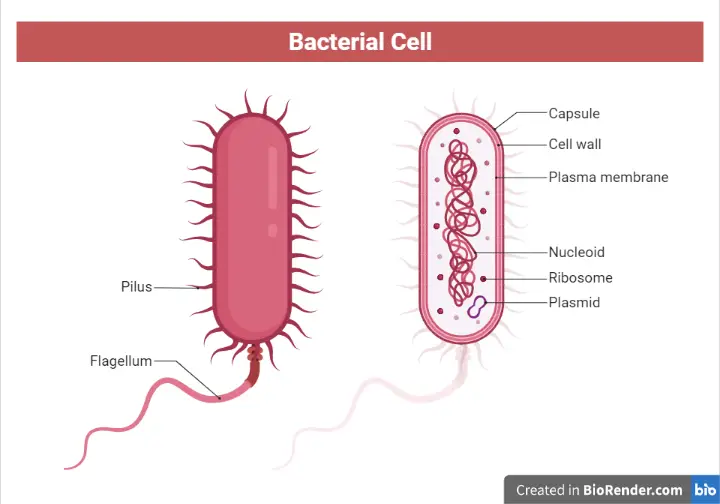

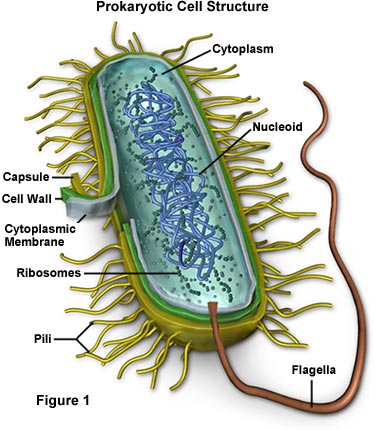


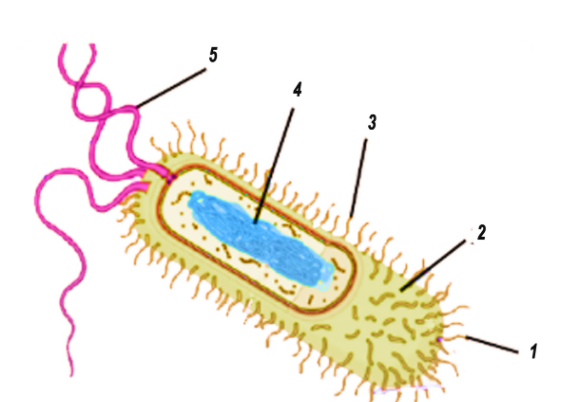

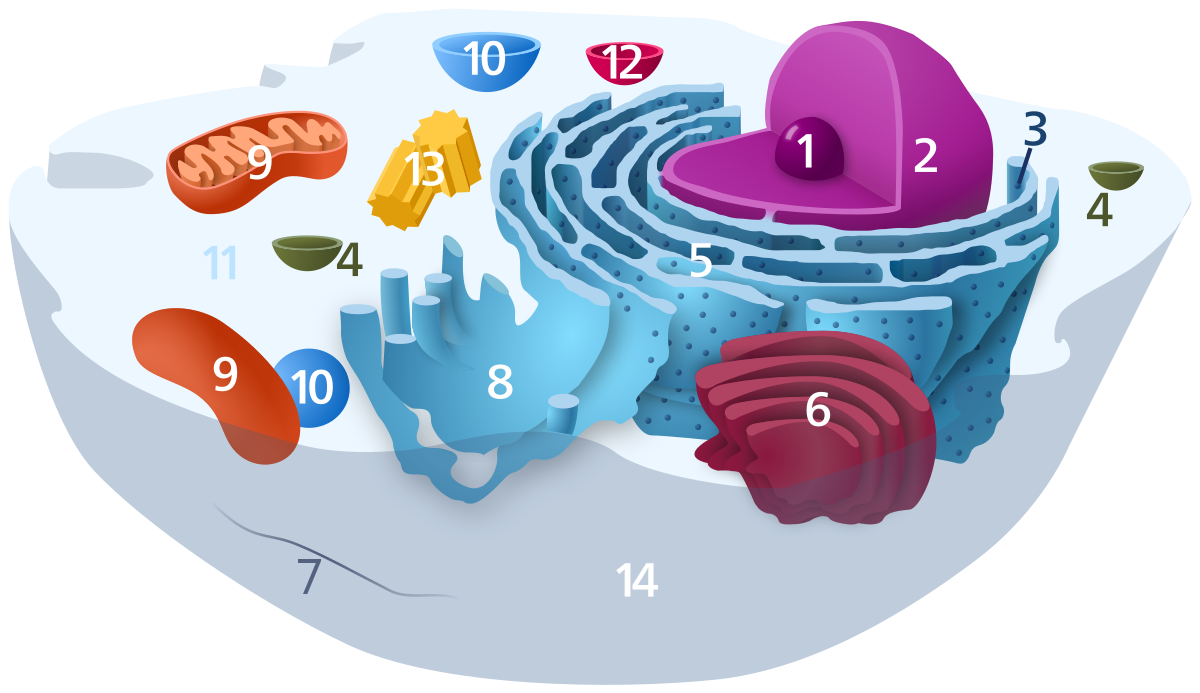

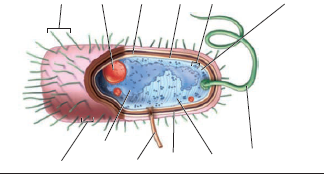



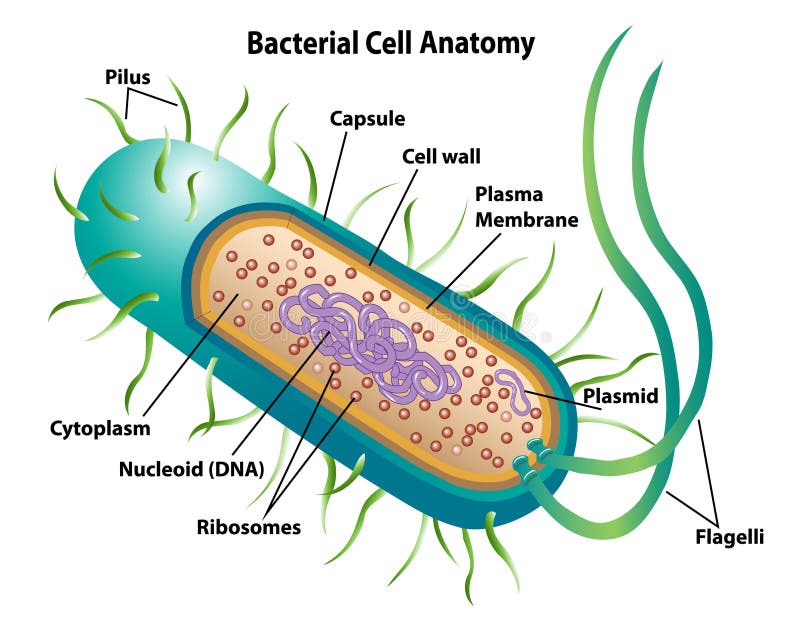
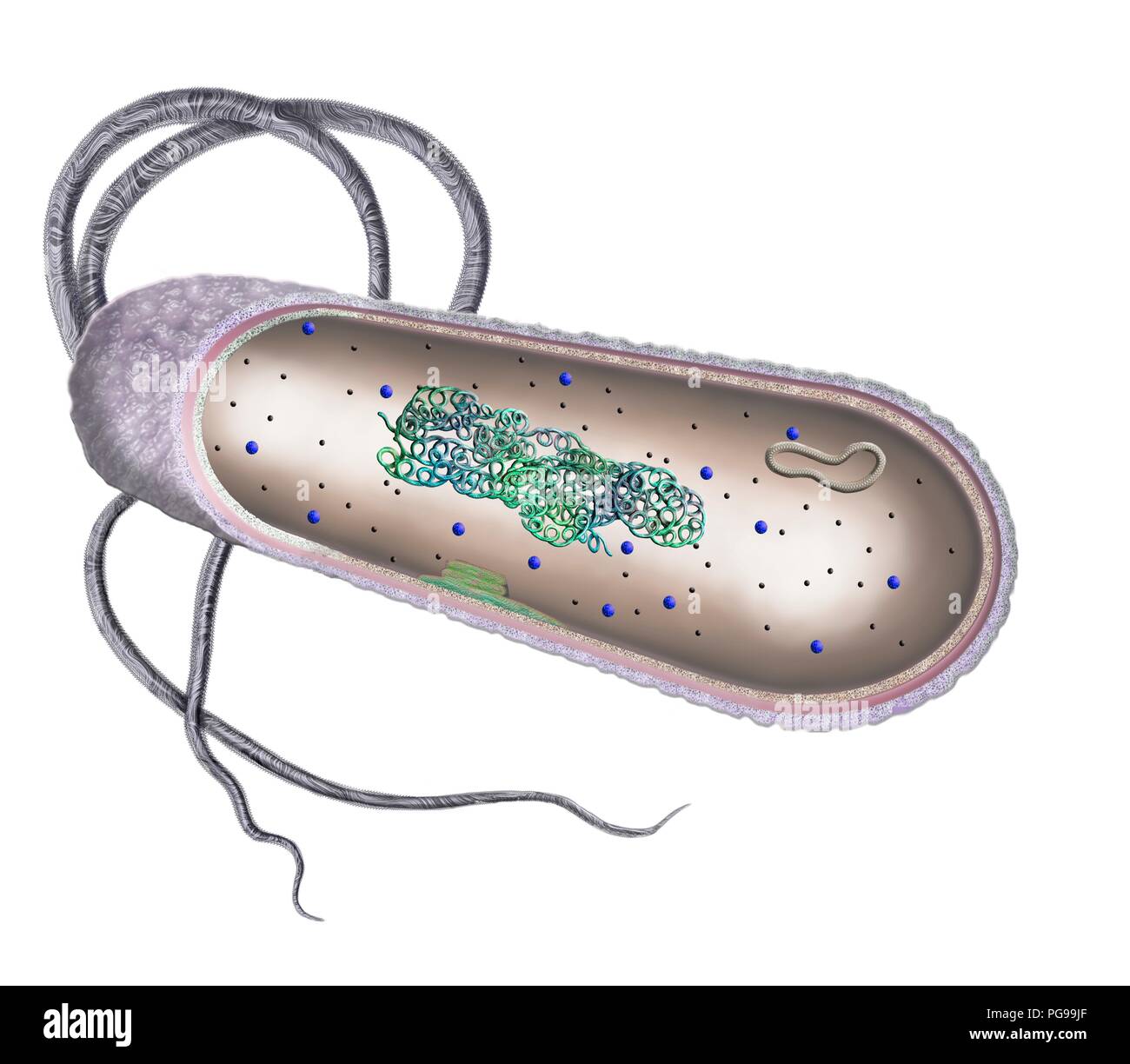







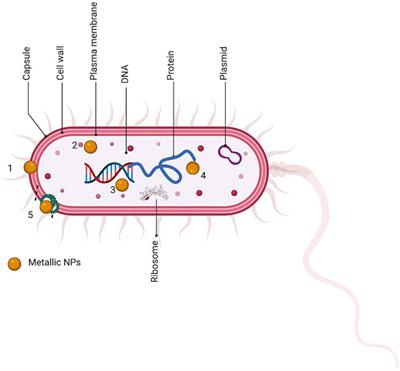




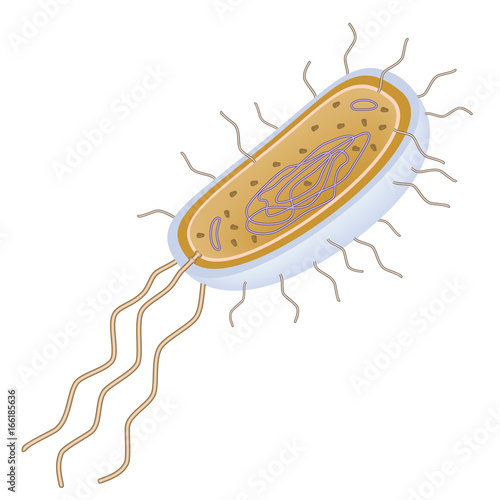
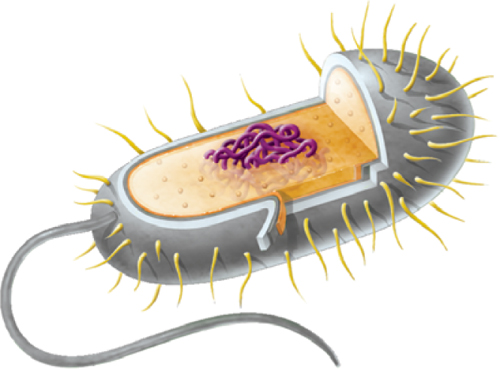

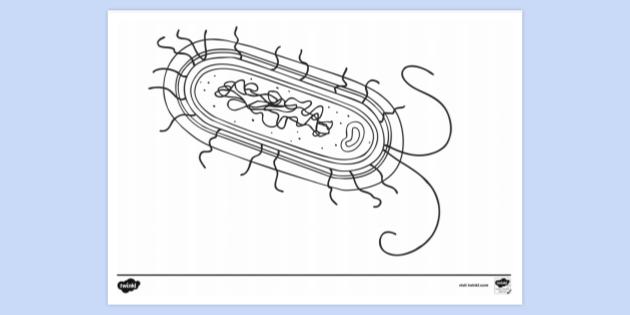
Post a Comment for "44 bacterial cell without labels"